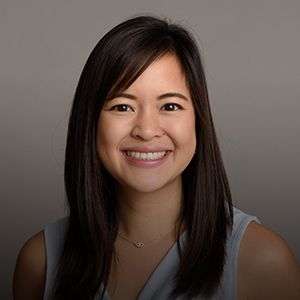
Myopia, or nearsightedness, happens when the eye grows too long from front to back. This causes light to focus in front of the retina instead of directly on it, making distant objects blurry while close-up vision remains clear.
Myopia usually begins between ages 6 and 12 and often worsens during the school years as a child’s eyes continue to grow. Risk factors include:
Genetics – higher risk if one or both parents have myopia
Lifestyle – lots of near work (reading, screens) and limited outdoor time
Growth spurts – eyes, like the rest of the body, can grow quickly in childhood and adolescence
Because children’s eyes are still developing, this is a critical window to slow progression.

Myopia is becoming more common worldwide — by 2050, it’s expected to affect half of the global population. The higher the myopia, the greater the risk of eye diseases such as:
Myopic macular degeneration
Glaucoma
Retinal detachment
Cataracts
Even small increases in myopia can raise lifetime risk. That’s why it’s important to slow progression early and protect your child’s future vision. Want to know if your child might be at risk? Take the quiz today and learn whether myopia management may be right for your child.
Take the Quiz
Regular glasses or contact lenses correct blurry vision, but they do not slow the progression of myopia. At Arbor Eyecare, patients in our Myopia Management program receive personalized guidance through proven treatment options that help slow eye growth and lower the risks of high myopia
1. Low-Dose Atropine Eye Drops
Nightly prescription eye drops that can slow progression by 50–60% on average
Simple to use: one drop in each eye at bedtime
Non-invasive and well tolerated
Available through compounding pharmacies (local or mail-order)
2. Soft Contact Lenses for Myopia Control
Daily disposable lenses (such as MiSight® 1 day) are FDA-approved for slowing myopia progression
Correct vision and slow progression at the same time
Convenient and safe with proper hygiene
Great for active children who want freedom from glasses.
Specially designed lenses available in other countries, not yet FDA-approved in the U.S.
We can connect families with a trusted Canadian provider if this option is preferred
Safe and easy to adapt to, especially for children who don’t want contacts or drops
4. Orthokeratology (Ortho-K) Contact Lenses
Custom lenses worn overnight to gently reshape the cornea
Provide clear daytime vision without glasses or contacts
Reduce progression by 30–60%
Not currently offered at Arbor Eyecare, but we can refer to trusted providers if this is the best option for your child.

There is no treatment that can stop myopia altogether, but each option can slow progression and reduce risk. The best choice depends on your child’s age, prescription, eye health, and lifestyle. Our doctors will guide you through the options and create a plan that fits your family’s needs
Wondering if myopia management might be right for your child? Call (425) 831-2020 to Schedule a consultation with Dr. Stratton or Dr. Wang today — our team will evaluate your child’s eyes and recommend a personalized treatment plan.
Who will my doctors be?

Dr. Jaime Wang
"My patient philosophy is first and foremost to treat every patient with respect and compassion as I would my own family member."

Dr. Aleksandra "Ola" Stratton
"I believe that every patient deserves the best possible care, which happens by participating fully in their medical experience."











